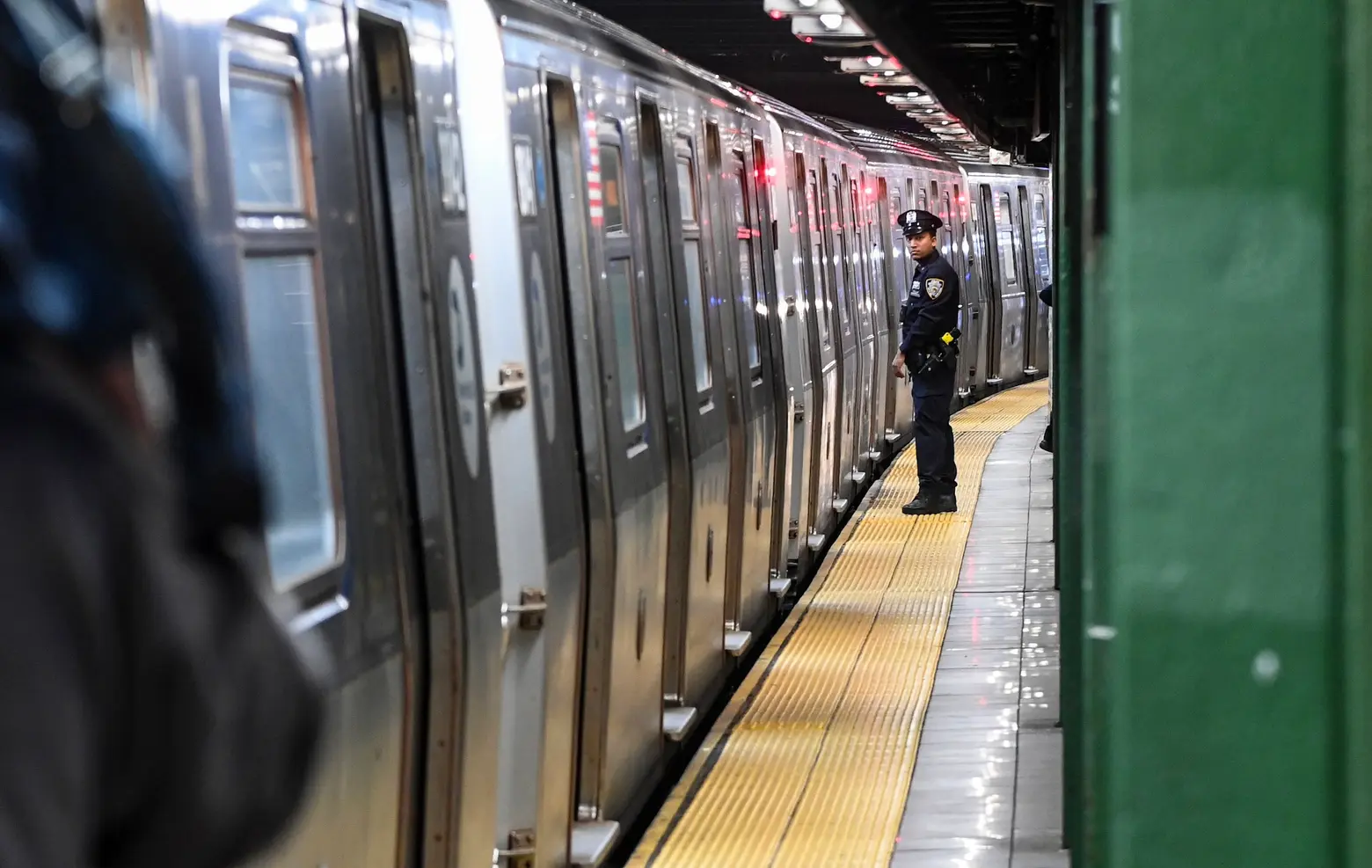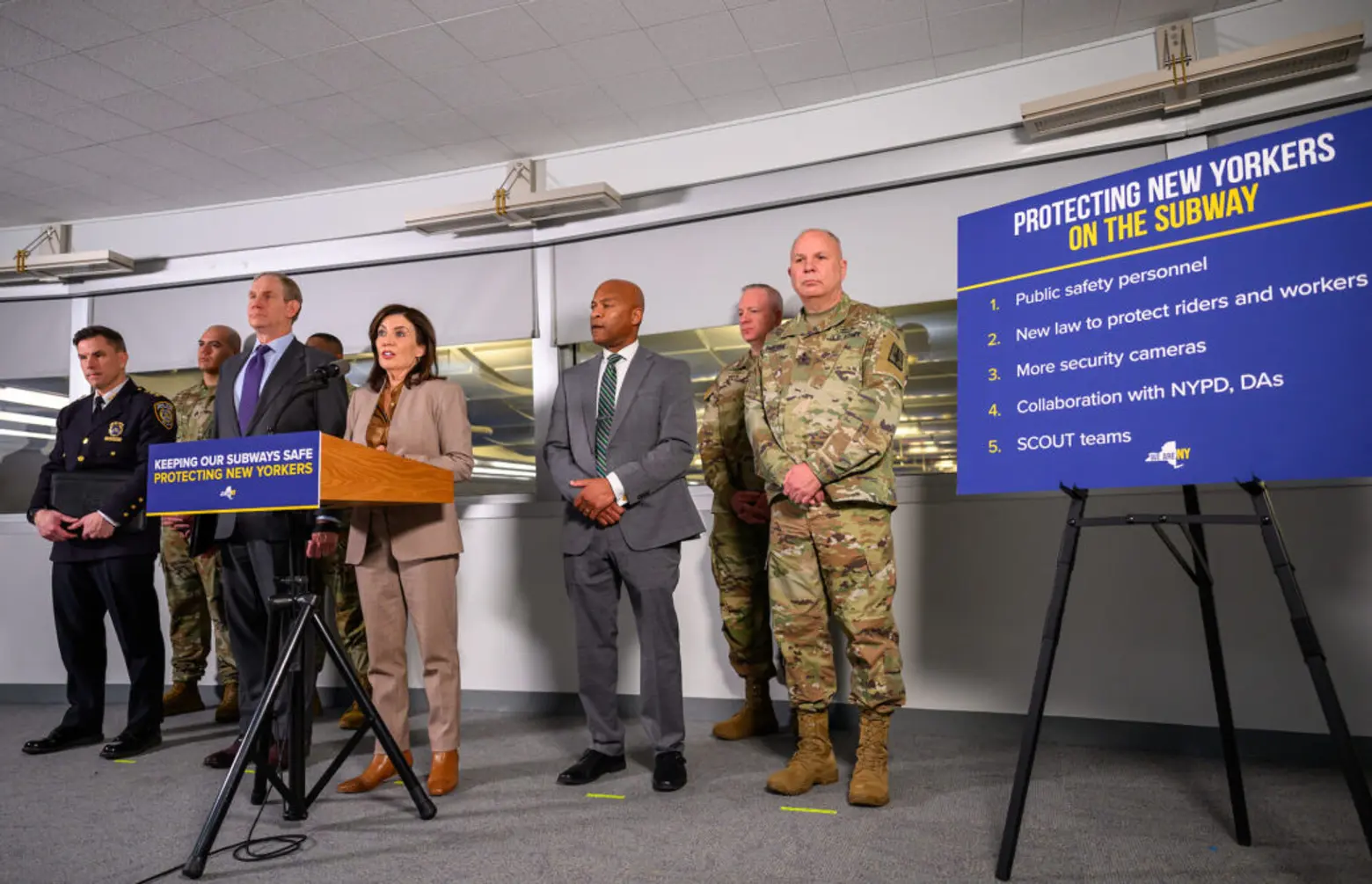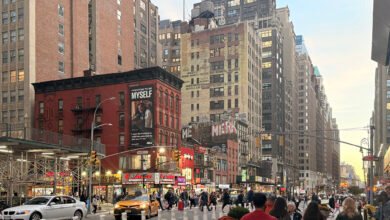

Gov. Kathy Hochul on Wednesday said she would deploy roughly 1,000 National Guard and New York State Police members to patrol the New York City subway system and help officers check bags for weapons. The additional personnel, which includes 750 National Guard members and 250 members of the state police and MTA police department, are meant to make riders feel safe following several recent high-profile assaults in the transit system.

Hochul’s five-point plan announcement comes after a 45 percent jump in overall crime in January compared to the same time last year.
Major crime in the subway is currently up 13 percent compared to the same time last year, largely due to an uptick in grand larcenies, according to Gothamist. Since January, there have been three homicides and several assaults in the system, including the stabbing of a transit worker last month.
But the number of crimes committed in the transit system this year is still roughly 3 percent lower than at the same time in 2019, when more people were riding the subway, according to the New York Times.
In February, Mayor Eric Adams ordered an additional 1,000 NYPD officers to the subway system. This week he also announced plans for the NYPD to ramp up bag checks, which were first implemented in 2005 as a terrorism prevention measure.
The governor said during the mandatory bag checks, to be implemented at the city’s busiest stations, officers will look for weapons.
“You’ll start seeing them at the tables, making sure that weapons are not being brought in, working in concert with our New York State Police, as well as our NYPD,” Hochul said on Wednesday, referring to the new bag inspections. “Because no one heading to their job or to visit family or to go to a doctor appointment should worry that the person sitting next to them possesses a deadly weapon. They shouldn’t worry about whether someone’s going to brandish a knife or gun.”
As per MTA policy, riders are allowed to refuse bag checks but won’t be allowed to ride the train.
The governor also plans to introduce legislation allowing courts to ban anyone who has been convicted of a violent crime of another passenger from taking the subway or bus.
“Basically if you assault someone on the subways, you won’t be on the subways and a judge will now have the power to make sure that for at least three years, they’ll have the ability to keep you off the subways,” Hochul said.
Additionally, Hochul has directed the MTA to install cameras in every conductor cabin, as well as on the platforms that face the cabins, following a recent high-profile crime where a conductor was slashed in the neck while performing a safety check at a Brooklyn station.
The plan also provides an additional $20 million to have 10 more mental health outreach teams perform outreach on the subways.
Adams on Tuesday said that the city is considering installing gun detectors in the subways and has identified two potential models. However, there are no immediate plans for a pilot program, according to Gothamist.
In a post on X, public transit advocacy group Riders Alliance expressed concern over the deployment of National Guard members and additional police.
“We’re disturbed to see @GovKathyHochul deploy the National Guard to check bags in subway entrances as a core part of her safety response — a measure that evokes stop-and-frisk and will undoubtedly target Black and brown riders in greater proportion,” the group said.
“A meaningful approach to protecting millions of riders + workers on our platforms requires @GovKathyHochul + @NYCMayor to invest resources in housing, healthcare and social services to address the root causes of problems that exist everywhere but are most visible on our subway.”
Progressive grassroots organization VOCAL-NY also condemned Hochul’s order, expressing concern over the impact it could have on homeless, low-income, and other marginalized New Yorkers.
“Let’s be clear about who the National Guard’s ‘random checks’ will be focused on under Governor Hochul’s orders: low-income, marginalized New Yorkers who have been racially profiled for decades,” Milton Perez, a leader with VOCAL-NY’s Homelessness Union, said in a statement.
“If more law enforcement actually made people safer on the subways, we wouldn’t be in this position to begin with. The safest communities are the ones with the most investments, especially in housing and services — not an increased, armed presence.”
RELATED:




